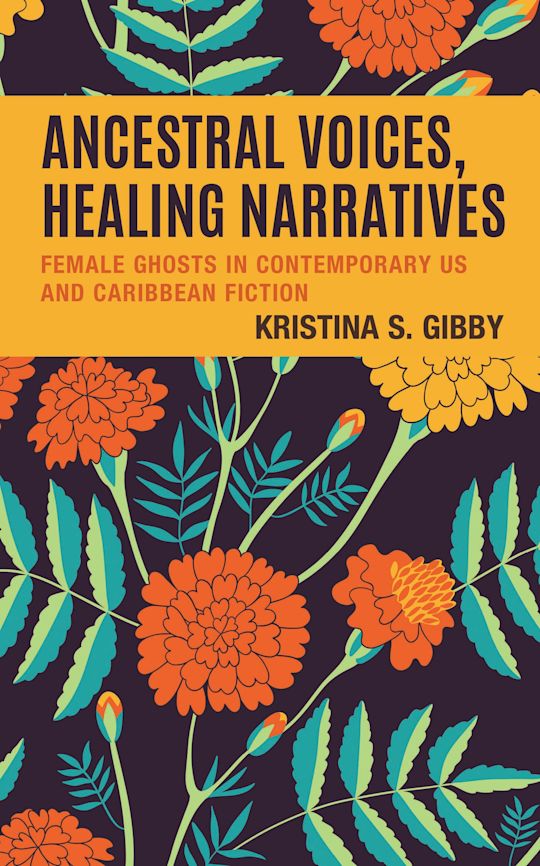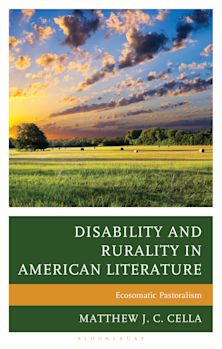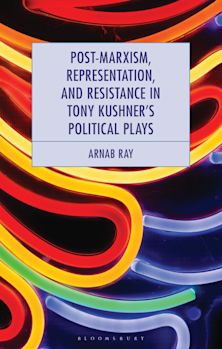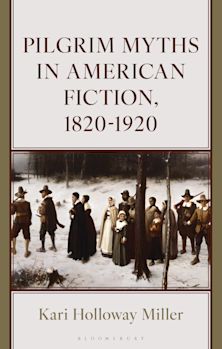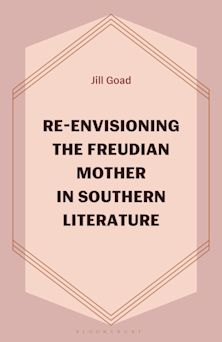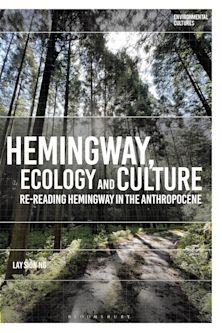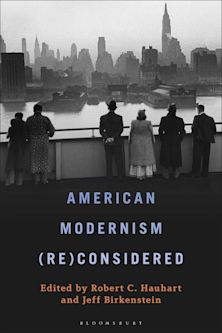- Home
- ACADEMIC
- Literary Studies
- North American and Caribbean Literature
- Ancestral Voices, Healing Narratives
Ancestral Voices, Healing Narratives
Female Ghosts in Contemporary US and Caribbean Fiction
Ancestral Voices, Healing Narratives
Female Ghosts in Contemporary US and Caribbean Fiction
This product is usually dispatched within 1 week
- Delivery and returns info
-
Free CA delivery on orders $40 or over
You must sign in to add this item to your wishlist. Please sign in or create an account
Description
Ancestral Voices, Healing Narratives: Female Ghosts in Contemporary US and Caribbean Fiction examines four novels by Erna Brodber, Zoé Valdés, Sandra Cisneros, and Maryse Condé. In this unique comparative analysis, Kristina S. Gibby explores the significance of female ghosts—specifically maternal figures, who haunt female narrators, inspiring them to transcribe the dead’s obfuscated (hi)stories and recover their family memory. The author argues that these female ghosts subvert historiographic power structures through a matrilineal succession of knowledge via oral traditions of storytelling, inevitably broadening historical consciousness and asserting the value of fiction in the face of historical rupture. Gibby contends that in form and content, these novels disrupt patriarchal and Western expectations of time and epistemology. They favor cyclical temporality (highlighted by the spirits’ uncanny return), which underscores relational understanding and challenges the exclusive and limiting constraints of linear time. This book makes important contributions to inter-American literary criticism with its narrow focus on female authors who confront the horrors of history through maternal spirits.
Table of Contents
Introduction: Phantom Ache: Ghosts, Fiction, and Alternative Histories
Chapter One: Ghosts in New World Literature
Chapter Two: “Anthropology of the Dead”: Ghosts, Subaltern Knowledge, and Alternative History in Louisiana
Chapter Three: Haunting and Affect: Ghosts and Nostalgia in Te di la vida entera and Caramelo
Chapter Four: Haunting, History, and Imagination in Victoire
Conclusion
Bibliography
About the Author
Product details
| Published | Dec 04 2023 |
|---|---|
| Format | Hardback |
| Edition | 1st |
| Extent | 130 |
| ISBN | 9781666909647 |
| Imprint | Lexington Books |
| Dimensions | 237 x 159 mm |
| Series | Reading Trauma and Memory |
| Publisher | Bloomsbury Publishing |
About the contributors
Reviews
-
In the literary traditions of two disparate writers, William Faulkner and Toni Morrison, Gabby examines the introduction of ghosts as a tool to connect protagonists' historical past to a defining identity of the present. This compact, compelling study of four women writers spans time and space, cultural identity and affinity, and throughout Gibby provides invaluable insights on the ineradicable historical traumas of women across cultural/physical borders. Examining the metaphor of ghosts in the fiction of the Erna Brober (Jamaican), Zoé Valdés (Cuban), Sandra Cisneros (Mexican American), and Maryse Condé (Guadeloupian), the author links the traumas of the past—slavery, dehumanization—to a search for self-identification rooted in the historical present. The ancestral female ghosts recover and embolden female voices, transcending time. This reclamation rejects the historical marginalization that failed to recognize the wholeness of the protagonists’ femininity and self-worth. Whether literal or figurative, the representation of ghosts links traumas that “collaps(e) the boundaries of space and time to restore what was lost, forgotten, and broken.” The global images that haunt the female protagonists link painful memory to restorative present. Adding to comparative literature in general and to the literature of women writers across the Americas, the book is expertly researched and detailed in its examination of the novels. Highly recommended. Graduate students, researchers, faculty.
Choice Reviews
-
“Sensitively argued and meticulously researched, Ancestral Voices, Healing Narratives makes a valuable contribution to the literary reappraisal of memory and trauma. Through a comprehensive analysis of female ghosts in contemporary US and Caribbean fiction, Kristina Gibby provides an innovative, and ultimately empowering, lens for coming to terms with a traumatic past and finding a path to healing.”
Bonnie Thomas, University of Western Australia
-
“Ancestral Voices, Healing Narratives: Female Ghosts in Contemporary US and Caribbean Fiction offers an innovative way of reading the authors Maryse Condé, Erna Brodber, Sandra Cisneros and Zoé Valdés. By providing a meditation on the multiple ways texts can be inhabited, Kristina Gibby allows us to see the traces of both trauma and healing that connect female authors from the US and the Caribbean. The result is a spectrally vibrant account of literary spiritual voices whose imaginaries of history, time, and memory are rich, rebellious, and complicated.”
Solimar Otero, Indiana University-Bloomington

ONLINE RESOURCES
Bloomsbury Collections
This book is available on Bloomsbury Collections where your library has access.









